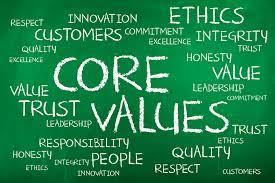The Danger of an Out-of-Touch C-Suite

While billionaires continue to trumpet their excess and competitive desires to fly into space, they may want to take a look around before launching themselves on the next rocket to the edge of space for a ten-minute flight. John Glenn’s first manned flight carried much greater import and influence over the world’s imagination.
Corporate leaders need to address the world’s challenges – the pandemic, climate change, racial justice, voting rights – rather than looking into space. Even looking further down the list of priorities, our economy is gaining momentum but real challenges still are on the horizon.
We hear every day about ESG as the new buzzword. While the goals of the ESG focus are laudable, we face other challenges as well. Far be it from me to criticize ESG, but thankfully we have the G to continue the battle for compliance, sustainable growth, and other important trends that must remain at the top of every organization’s priorities.
Every organization is facing challenges with the rapid spread of the variant, the resistance to vaccinations, and the continuing threat to our economy and relief from last year’s pandemic. At the same time, we continue to experience fraying at the edges (or even the core) of our political system, the spread of disinformation and the absence of empathy and care in our communities.
Business leaders are caught in this web of conflict. While they would like to ignore it, or pretend it does not impact their companies, the reality is that employees come to work (or work remotely) carrying with them their own perspectives on these difficult times. Employees want to connect with their leaders and cite them as examples.
The first step leaders of an organization must take is to listen and acknowledge employee concerns, fears and opinions. Companies are not democratically-run organizations but they depend on the fabric of our democracy. Employees reflect societal concerns. Leaders who ignore this dynamic do so at their own risk – there is nothing more dangerous to a company than an “out-of-touch” C-Suite.

Corporate leaders can easily be entranced by their offices, trappings of power and position in their organizations. All too often, the C-Suite loses any real connection with the rank and file. Employees look to corporate leaders as examples of ethics and commitment to the corporate mission. If the leaders make no effort, the critical link between the C-Suite and the organization will dwindle and the risk of corporate malfeasance will inevitably fester.
Numerous articles are written on the importance of leadership. Some of helpful – others are pablum. The best corporate leaders are those who combine business acumen and emotional intelligence. EQ may be hard to define with words but we all know it when we see it. It is the rare combination of confidence, empathy, listening, trust and humility. Leaders can inspire employees to do great things – organizations have to define their mission, appoint qualified leaders, build trust and integrity, and demonstrate empathy and concern for everyone who works at the organization.

Not everyone is perfect, but an organization that follows these basic principles does not need consultants to tell them whether they have effective leaders. A corporate board knows when a CEO is doing his/her job. If they are fulfilling their mission, a corporate board should be able to assess a CEO and the senior team in the C-suite without belaboring leadership assessments, surveys and other measures usually designed to avoid the inevitable “discovery” that the C-Suite is disconnect from its employees. When that happens, the organization’s foundation begins to crumble.
















Very well said, Mike!
With all due respect to John Glenn, he was the THIRD American to go on a manned mission into space. Alan Sheppard and Gus Grissom each did a suborbital flight (similar to those of Bezos, Musk, and Branson) before Glenn orbited Earth. And of course Yuri Gagarin did an orbit before any of them went up.